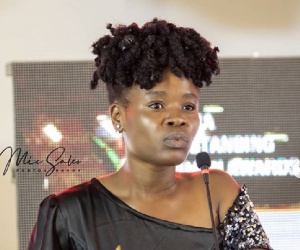Health News of Saturday, 4 July 2015
Source: GNA
Ebola vaccine trial is not dangerous Prof Binka
The vaccine against the Ebola viral disease, being tested by the Kintampo Health Research Centre (KHRC) and now under clinical trials is not dangerous to the health and well-being of the public.
Professor Fred Binka, Vice-Chancellor, University of Health and Allied Sciences at Ho in the Volta Region clarified the issue at Kintampo in the Brong-Ahafo Region.
Prof Binka, member of an investigative team of Ghanaian scientists testing the vaccine against the Ebola disease made this known at a public engagement forum organised by the KHRC at the instance of the Minister of Health, Mr Alex Segbefia.
The forum aimed at explaining the nature and processes of the proposed clinical trials of the Ebola vaccine to allay the fears and misconceptions of the public said the exercise might lead to the contraction of the disease by Ghanaians.
About 120 participants including health professionals, representatives of the Food and Drugs Authority (FDA), Ghana Health Service (GHS) Ethics Review Committee, Noguchi Memorial Institute for Medical Research, traditional rulers and the Media attended.
Prof Binka explained that the objective of “the current proposed clinical trials in Ghana is to contribute towards the development of an effective vaccine to protect populations in future outbreaks of the disease in the West African Sub-region”.
“The vaccine in general is used to immunise populations without infection nor disease. So the clinical trials will recruit healthy Ghanaians to determine the safety and to assess how the body tolerates the proposed vaccines in the first instance,” he added.
The forum resulted from concerns and uncertainties raised by the Ghana Academy of Arts and Sciences (GAAS) about the proposed vaccine against the Ebola Virus Phase II Clinical trials in the country and questions by the public.
Among the issues raised by the GAAS were “the nature and origins of the Ebola virus, including the circumstances of its appearance in Guinea”, “whether the Zaire strain of the virus, which is the one being used in the GSK vaccine to be tested in Ghana is the strain responsible for the Ebola epidemics in Liberia, Mali, Nigeria, Senegal and Sierra Leone”, and “the identity and characteristics of other strains of the Ebola virus that might exist”.
Dr Seth Owusu-Agyei, Director of KHRC emphasised the need for the clinical trials, stating that the first trial on Vitamin ‘A’ that has positively affected national health policy was done by the Centre.
Dr. Owusu-Agyei observed that infant mortality nowadays is not common in the country because of the availability of the various vaccines, implying that the clinical trials against the Ebola disease to protect the populace are very significant.
Prof Kwadwo Koram, Director of Noguchi Memorial Institute, Mrs Yvonne Adu Boahen, Head of Clinical Trials Department of FDA, Dr Ama Edwin of GHS Ethics Review Committee and Dr Kwaku Poku Asante who is the Head of Research on the Ebola Vaccine Trial at the KHRC, were part of the team.
The next forum would be held in the Upper East Region.









